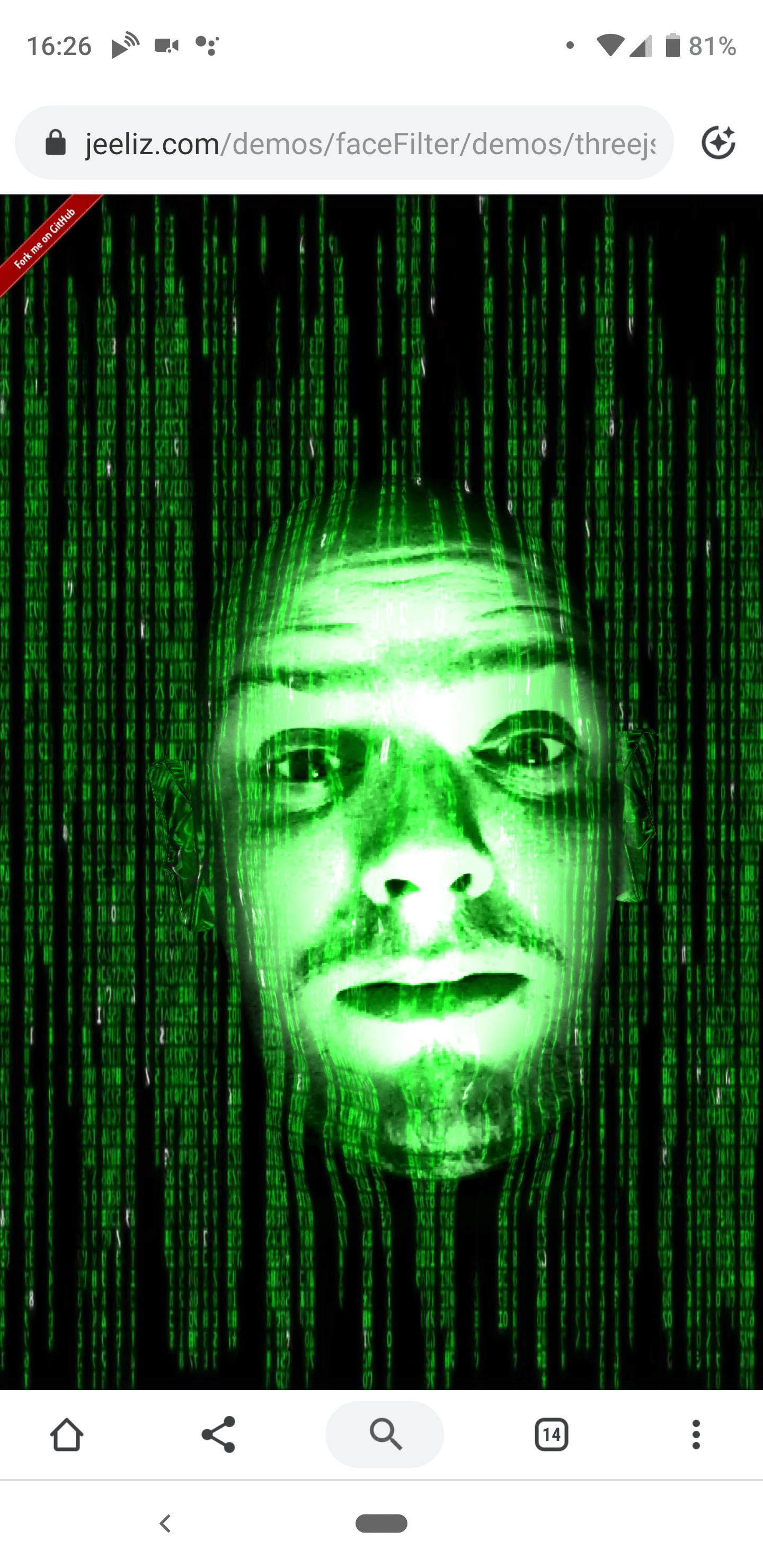I've been playing around a lot with the [Shape Detection
API](https://paul.kinlan.me/face-detection/
https://paul.kinlan.me/barcode-detection/
https://paul.kinlan.me/detecting-text-in-an-image/) in Chrome a lot and I really
like the potential it has, for example a very simple QRCode
detector I wrote a long time ago has a JS polyfill, but
uses new BarcodeDetector() API if it is available.
You can see some of the other demo's I've built here using the other capabilities of the shape detection API: Face Detection,Barcode Detection and Text Detection.
I was pleasantly surprised when I stumbled across Jeeliz
at the weekend and I was incredibly impressed at the performance of their
toolkit - granted I was using a Pixel3 XL, but detection of faces seemed
significantly quicker than what is possible with the FaceDetector API.

It got me thinking a lot. This toolkit for Object Detection (and ones like it) use API's that are broadly available on the Web specifically Camera access, WebGL and WASM, which unlike Chrome's Shape Detection API (which is only in Chrome and not consistent across all platforms that Chrome is on) can be used to build rich experiences easily and reach billions of users with a consistent experience across all platforms.
Augmentation is where it gets interesting (and really what I wanted to show off in this post) and where you need middleware libraries that are now coming to the platform, we can build the fun snapchat-esque face filter apps without having users install MASSIVE apps that harvest huge amount of data from the users device (because there is no underlying access to the system).
Outside of the fun demos, it's possible to solve very advanced use-cases quickly and simply for the user, such as:
- Text Selection directly from the camera or photo from the user
- Live translation of languages from the camera
- Inline QRCode detection so people don't have to open WeChat all the time :)
- Auto extract website URLs or address from an image
- Credit card detection and number extraction (get users signing up to your site quicker)
- Visual product search in your store's web app.
- Barcode lookup for more product details in your stores web app.
- Quick cropping of profile photos on to people's faces.
- Simple A11Y features to let the a user hear the text found in images.
I just spent 5 minutes thinking about these use-cases — I know there are a lot more — but it hit me that we don't see a lot of sites or web apps utilising the camera, instead we see a lot of sites asking their users to download an app, and I don't think we need to do that any more.
Update Thomas Steiner on our team mentioned in our team Chat that it sounds
like I don't like the current ShapeDetection API. I love the fact that this
API gives us access to the native shipping implementations of the each of the
respective systems, however as I wrote in The Lumpy Web, Web
Developers crave consistency in the platform and there are number of issues with
the Shape Detection API that can be summarized as:
- The API is only in Chrome
- The API in Chrome is vastly different on every platforms because their
underlying implementations are different. Android only has points for
landmarks such as mouth and eyes, where macOS has outlines. On Android the
TextDetectorreturns the detected text, where as on macOS it returns a 'Text Presence' indicator... This is not to mention all the bugs that Surma found.
The web as a platform for distribution makes so much sense for experiences like these that I think it would be remiss of us not to do it, but the above two groupings of issues leads me to question the long-term need to implement every feature on the web platform natively, when we could implement good solutions in a package that is shipped using the features of the platform today like WebGL, WASM and in the future Web GPU.
Anyway, I love the fact that we can do this on the web and I am looking forwards to seeing sites ship with them.
I lead the Chrome Developer Relations team at Google.
We want people to have the best experience possible on the web without having to install a native app or produce content in a walled garden.
Our team tries to make it easier for developers to build on the web by supporting every Chrome release, creating great content to support developers on web.dev, contributing to MDN, helping to improve browser compatibility, and some of the best developer tools like Lighthouse, Workbox, Squoosh to name just a few.
I love to learn about what you are building, and how I can help with Chrome or Web development in general, so if you want to chat with me directly, please feel free to book a consultation.
I'm trialing a newsletter, you can subscribe below (thank you!)




